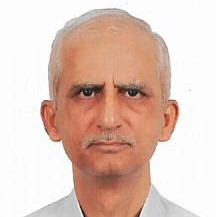Medicine is learnt more as a science and applied more as an art. While this is the practical reality, some may consider this to be a compromise of scientific principles. On deeper study it appears not be a compromise but something that is natural and inevitable.
The term 'quantum' refers to the smallest amount of a physical quantity that can be counted or measured. The name Quantum mechanics is derived from the observation that some physical quantities can change only in discrete amounts (Latin quanta), and not in a 'continuum' way. The theory and practice of medicine needs to be understood in a similar 'quantum' rather than the 'continuum' way if the observed phenomena in the world of medicine are to be fully accounted for. For example, when a disease is understood to be nearly incurable by conventional medicine and is cured by an unexplained alternative medicine, it is usually overlooked or disregarded as an 'exception'. The quantum view of medicine can explain such apparent variations or exceptions.
We understand the theory of a disease (its causation and treatment) based on some scientific principles. There is a flow of understanding from one aspect to the other like the continuous form as is familiar with Era 1 or 'body' medicine (structure-based). The recently understood Era 2 or 'mind-body' (thought-based) and Era 3 or 'mind-body-spirit' (feeling-based) medicine have their own way of understanding disease causation and treatment. In practice, all these three 'Eras' of medicine operate simultaneously (involving structure, thought and feeling) in varying proportions in different situations with both conventional and alternative medicine having components of all three 'Eras' within them.
Quantum meditation by Bob Fickes
If such a phenomenon of simultaneous working of different 'Eras' is to be explained, we need to visualize medicine as consisting of 'quanta' of these different 'Eras'. While conventional medicine is currently having Era 1 as its main component (with the nursing profession mainly providing the Era 2 and Era 3 components), the various streams of alternative medicine have Era 2 (e.g. hypnotherapy) or Era 3 (e.g. faith healing) as their main component. The outcome of a disease process would be decided by the 'quanta' of Era 1, 2, or 3 medicines in operation for the disease in question at the causative and therapeutic levels. The physician would use one of these 'Eras' preferentially depending on his own training and temperament.
While we see quanta of different systems in operation in the same patient, each quantum will have its effect independent of what precedes, follows or accompanies it. Medicine in real time operates in such a quantum way. This is supported by the fact that a high proportion of all patients who are treated by conventional medicine are apparently benefited by concomitant use of some form of alternative medicine. 1 The Era 2 and Era 3 components of the different forms of alternative medicine largely contribute to their unexplained effectiveness.
The 'quantum' framework helps in understanding conventional and alternative medicine in terms of the three 'Eras' in medicine. While it is inevitable that students study and learn mainly one of the three 'Eras' at the curriculum level, practical experience with patients leads to the optimal use of different 'Eras' by the patient-centred physician when he treats the patient from his 'heart' rather than from the 'head'. For what is learnt by the 'head' (mainly body medicine), when applied from the 'heart' acquires the positive and empathetic qualities of 'mind-body' and 'mind-body-spirit' medicine respectively. It is predicted that with increasing clarity about the role of spirituality in health, future health care systems would take care of not only the requirements of the body but also of the intangible soul. 2 Understanding the interaction of science and spirituality helps in making medicine simpler, more satisfying for both the patient and the physician and improve health care delivery.
References:
1. The Use of Complementary and Alternative Medicine in the United States https://nccih.nih.gov/research/statistics/2007/camsurvey_fs1.htm
2. A Conversation about the Future of Medicine http://www.dosseydossey.com/larry/QnA.html





